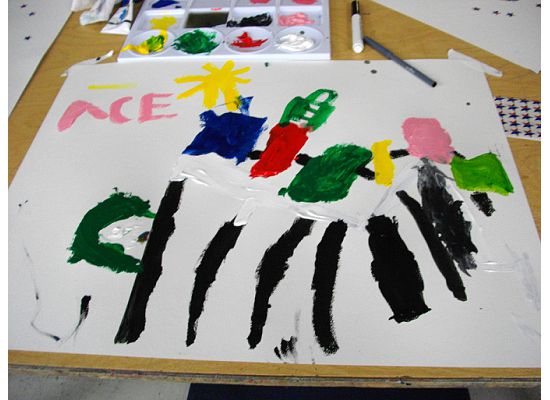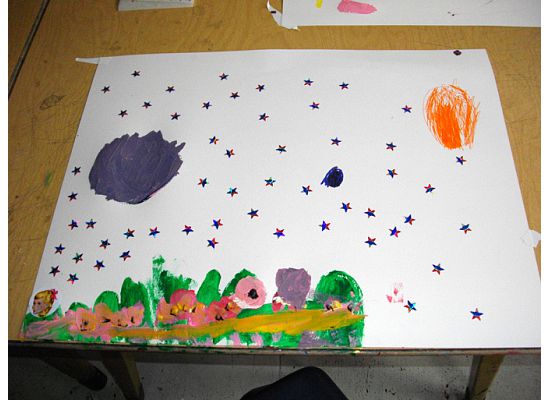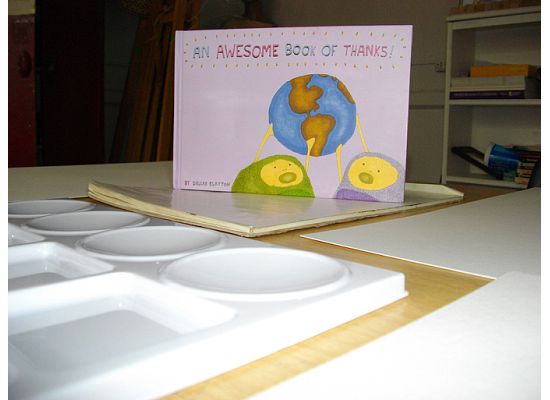In my inbox this morning was Karla McLaren's newsletter for July 1st. It is so beautiful that I wanted to share it in full. - Laura
PS: I haven't read her new book yet (The Language of Emotions: What Your Feelings Are Trying to Tell You) but I listened to a podcast discussion on it and found it fascinating.
Karla McLaren: Excerpt from The Language of Emotions
As I've been doing interviews, people have been focusing a lot on Conscious Complaining, probably because it's a good "hook," but I've really been thinking a lot about the seven intelligences I feature in the book. Here's the introduction to that section:
The skill of empathy allows us to read the interior state, the intentions, the emotions, the desires, and the possible actions of other people or animals. If we're very good at reading emotions, our social intelligence and our emotional intelligence tend to be very high. We get people and animals and their needs in the way some intellectual geniuses get mathematics or physics, or in the way artistic geniuses get colors, shape, and perspective. Empathy is one of the multiple kinds of intelligence we have.
However, most of us grew up in a world where multiple intelligences were not yet understood. It was only in 1983 that Harvard psychologist Howard Gardner's work on multiple intelligences became known. Dr. Gardner identified more than just the logical intelligence that most people focused on at the time – the intelligence that allows us to do math and science, identify patterns, and use logic and deductive reasoning. Logical intelligence is the one that can be measured on an IQ test, and for decades, it was the only aptitude that was openly called intelligence.
Dr. Gardner saw intelligence differently, and he put a name to six other forms of intelligence that go along with logical intelligence. Four of these intelligences are linguistic intelligence, which allows us to write, communicate, and learn other languages skillfully; musical intelligence, which allows us to identify tone, pitch, and rhythm, and to appreciate, compose, and perform musically; bodily-kinesthetic intelligence, which allows us to utilize our bodies and our musculature with great skill (think of dancers, athletes, and gymnasts); spatial intelligence, or the ability to recognize patterns in space, and to utilize space in novel ways. Architects, builders, people who are good at geometry, and most visual artists are strong in the spatial intelligence category.
The other two intelligences Dr. Gardner identified are interpersonal intelligence, which allows us to understand the intentions, motivations, and desires of others, and intrapersonal intelligence, which gives us the ability to understand our own motivations, intentions, and desires. These are incredibly important forms of intelligence that help us pilot through the social world.
With the ground of Dr. Gardner’s work to stand on, we can refer to intelligence as a constellation of abilities – and not simply those skills you use on IQ tests. However, here’s the problem for empaths: When most of us were growing up, the only kind of intelligences that mattered were the logical and spatial kinds that are on IQ tests. Maybe our musical and artistic intelligences were accessed in school, and probably, our bodily, sports-focused abilities were too, but P.E. and art were probably not an equal focus of our school day. When I went to school, P.E. and art were not seen as essential to learning, and now, with all the budgetary problems facing schools, P.E. and art are even less likely to take up a large part of the school day. Therefore, we don’t tend to access all of our intelligences at school.
It is very telling is that our interpersonal and intrapersonal intelligences are not a part of our formal schooling at all. I think I took a class called Citizenship once, but I can’t really remember it. What I do remember, in school and out of it, is that behavioral and social skills were often taught on the fly. We learned how to act by watching others or by being praised or yelled at, but there wasn’t any actual instruction. We earned to be in relationships and to be siblings or friends through osmosis, or on the fly, or by the seat of our pants. We didn’t receive direct instruction about our relationships or our emotions unless we made some huge social mistake, such as openly displaying unwanted emotions like anger, jealousy, or envy in their mood states. We were taught math and logic, we were taught art and music, we were taught P.E., and we were taught reading, writing, and languages. But in regard to our emotions, our interpersonal skills, and our intrapersonal skills, we were just supposed to have figured it out somehow.
As children, we were expected to have come into school with our interpersonal and intrapersonal intelligences already fully matured. We were expected to have our emotions, our social awareness, and our understanding of others under our belts already. We got demerits or gold stars for our behavior, but we didn’t learn how to identify our emotions or work with them skillfully. So if we were angry or sad or afraid at school, we’d have to keep it hidden or risk being made the center of attention. If we acted out our anger, we’d probably be sent to the principal or the school counselor, or we’d have to go to detention or stay after school. The anger would take us out of the normal school day, out of the classroom, and out of the way. And the other kids would learn, “You don’t do that. You don’t express anger, or you’ll be shamed.” If we acted out our fear or our sadness, we might be seen as weaklings and maybe become targets for the other kids, or we might become the teacher’s pet, which is often the same thing as being a target.
We certainly didn’t learn that anger helps us set effective boundaries; that fear is our intuition; or that sadness helps us relax and let go of things we don’t need anyway. What I also noticed at school, and it may have been different for you, is that acting out our compassion was also frowned upon. For instance, if a child was being isolated and identified as a geek or a target, you took your social survival into your own hands if you tried to befriend him or stick up for him (if you didn’t have status, that is). Sometimes, I saw kids with status – you know, the cool kids, the pack leaders – reach out with compassion and essentially throw a cloak of protection over a social outcast, but it didn’t happen as often as it needed to.
What I saw growing up, and what I still see, is that we’re asked to grow to maturity while keeping two of our most important intelligences under wraps, in the shadows, out of the way, and off the radar. As adults, we tend to need therapists, counselors, and psychiatrists to help us access our emotions and our interpersonal and intrapersonal intelligences – even though these intelligences belong to us and are essential to pretty much everything we do. It’s not surprising, then, that we don’t know what emotions are, what they want, or what they do. It’s also not surprising that we’re left to create a ground under the emotions for ourselves.
I wonder, did you have the chance to develop all of your intelligences when you were a child? Specifically, were you lucky enough to have clear instruction about emotions and how to work with them? Wouldn't it be wonderful if everyone had that?
As I look at the troubles we humans are having with greed, insensitivity, violence, multiple intolerances, and all the varied "isms" we create, I can't help but think that our real problem is emotional. Certainly, we're as logically, spatially, musically, bodily-kinesthetically, and artistically smart as anyone could wish for. Humans rock those five intelligences!
But as we can see everywhere we look, every hour of every day, we humans often fall short in our interpersonal (and inter-group!) and intrapersonal intelligences. With my book, I hope to change this. It is truly the most important work I can imagine. I believe in the possibilities inherent in human nature, and I hope we can bring our already-massive smarts to the most vital intelligences we possess.



































